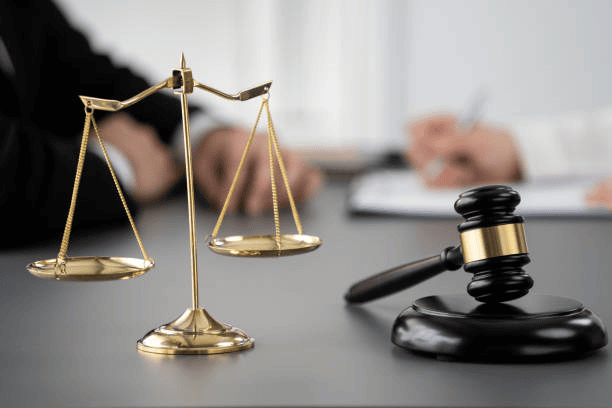If you’re owed money or need to resolve a relatively minor legal dispute, the Small Claims Court NSW could be your solution. This specialised court streamlines processes for matters valued at up to $20,000. This makes it an accessible and less costly alternative to higher courts.
This article will discuss essential information about Small Claims Court NSW:
- What is a small claims court?
- Small claims court NSW pre-trial review and hearing
What Is Small Claims Court?
The Small Claims Court NSW handles simple claims for $20,000 or less in an affordable, expedient, and non-formal way. An appeal from a judgment or order in a small claims matter lies with the District Court, but only on the grounds of a lack of jurisdiction or denial of natural justice. This division has distinct policies and procedures, some of which are as follows:
- Stringent restrictions on the fees that attorneys may charge – this limits the potential legal expenses that each party may need to pay and gives some predictability. Section 37 of the Local Court Act 2007 (NSW) provides that, in the Small Claims Division, the court does not have the general authority to impose legal costs.
Rule 2.9 of the Local Court Rules 2009 (NSW) states that the following specific situations allow the court to impose the payment of costs:
- if the defence is rejected at a hearing or pre-trial review, or if the proceeds are withdrawn or dismissed
- if a party’s negligence or neglect, including a party’s disregard for a court order, results in the adjournment of the proceedings
- in the event that the court considers a motion
- in the event that the court rules following a thorough hearing.
The court can also award costs for:
- Specific costs set by law (fixed costs legislative provision within the meaning of the Legal Profession Uniform Law).
- Court fees and service fees.
- Expert reports (up to $350 per report).
- Search fees.
- Costs related to issuing a subpoena.
The highest amount of expenses that can be incurred is the same as what could be incurred if the creditor won a default judgment. In addition, the winning party may be entitled to certain restricted payments, including:
- court costs,
- service charges, and
- expert opinion report fees (up to $350 per report).
- The rules on evidence do not apply – parties defending themselves may narrate their case in their own words without the need for sworn testimony.
- Prioritises early settlement – the court actively promotes settling cases prior to hearings
- Open questioning – The presiding judicial officer (registrars, magistrates, and assessors) can question the parties about the facts and their evidence at any time.
Small Claims Court NSW: Pre-trial Review
The court will send notice of listing for a pre-trial review to each party if they file a defence contesting a statement of claim. The court discloses pre-trial review’s date, time, and location to the parties in this notice.
Pre-trial reviews in the Small Claims Court NSW are informal hearings that registrars, assessors or magistrates preside over. They examine contentious topics and possible resolutions. The court will issue instructions to set up the case for a final hearing if there is no agreement at the pre-trial review.
Furthermore, attending the pre-trial review is mandatory. If you are unable to attend in person, you might be able to participate by audiovisual link or phone appearance (you should make these arrangements by contacting the court).
Moreover, you should notify the court as soon as possible if you will not be able to attend in person or over the phone, for example, because you are in the hospital. You must do so in writing, and attach supporting document (such as a note from your doctor explaining why you can’t make it).
What Happens During This Stage?
Pre-trial conferences are typically the first and only chance you and the opposing party have to:
- discuss reaching a settlement,
- resolving any doubts regarding the case, and
- defining the problems at hand.
Because of this, before you attend the pre-trial review, you must prepare your case and have a clear understanding of the result you hope to achieve. To better understand your options and determine what you could fairly ask for or offer, you should see an attorney.
To help the court avoid scheduling unavailability on any given date, you should also bring a list of available dates.
Small Claims Court NSW: The Hearing
The Small Claims Court NSW will typically issue case management orders to get everything ready for the final hearing if the matter doesn’t resolve. In addition, the Pre-Trial Review Sheet (Annexure D to Local Court Practice Note Civ 1), which is submitted to the court during the pre-trial review, must be filled out by the parties.
This form includes a list of the documented evidence that will be presented at the hearing, as well as an overview of each particular case. Moreover, this document is often filled out by the court officer if the parties are self-represented.
Prior to the hearing date, the court will instruct the parties to prepare and exchange:
- written statements
- supporting documentation.
Without the court’s permission, the parties cannot rely on any papers they do not file and serve under the case management rules during the hearing.
Who Conducts the Hearing?
A magistrate or assessor, who is capable of deciding on the hearing process, conducts the hearing. Because of this, Small Claims Division proceedings might vary from one court to the next.
Similar to what you did for the pre-trial review, you should have gathered and thoroughly examined all of the relevant material to prepare for the final hearing.
What Happens During This Stage?
If a solicitor does not represent a party, they must all be present for the hearing. Other witnesses are not required unless permission has been obtained for them to come. Hearings often last for 30 minutes.
Note that it is difficult to request an adjournment once the court has scheduled the subject for hearing. If you need to cancel the hearing date, you must file a notice of motion (UCPR Form 20) no less than 21 days in advance of the hearing.
If this isn’t feasible, you need to file it as soon as you find out you won’t be able to make it to the hearing. Also, if you have unavoidable circumstances that prevent you from attending the hearing, you should speak with court registry officials.
To provide a clearer visual on what happens during the hearing stage, here’s an overview of activities:
- The court will attempt to get the parties to settle out of court before holding a hearing on the case. In the absence of an agreement, the court will decide whether or not everything is in order and can move forward.
- The magistrate or assessor will read the pre-filed witness statements from the parties during the hearing. After that, each party will have a chance to address the different comments made and convince the judge that theirs is the better statement. We refer to this as “submissions.”
This is your final chance to highlight the advantages of your position and the flaws in your opponent’s reasoning when presenting your final submission or case summary.
The Verdict and Costs
The judge (assessor or magistrate) will listen to both sides and evidence, then deliver a judgment right away, usually explaining their decision verbally. They’ll also calculate your legal costs and the other party’s legal costs. In rare cases, they might need more time and will let you know the outcome later.
Winning: If the court dismisses the case of the other party (meaning you win), the court may order them to cover your legal costs.
Losing: If you lose, you’ll owe the claimed debt plus any court costs (like legal fees). The winner (judgment creditor) can then try to collect the debt from you for up to 12 years.

Consult Us About Small Claims Assessment Hearing
Have you been wronged in a business deal? Are you struggling to get a fair outcome after property damage? Frustrated over unpaid debts? Unsure whether your the local or supreme court should preside over your matter?
The Small Claims Court NSW could be the path to getting the resolution you deserve. This accessible court is designed for disputes where the financial stakes are lower, making justice more attainable.
Consulting an attorney for small claims cases is beneficial especially when your case involves complex legal arguments, contracts, or interpretation of laws. JB Solicitors’ expertise will be invaluable in understanding and dealing with these complexities. We can provide initial consultations for such matters, and give you advice for dealing with your small claims dispute.
Contact us today for a consultation.
